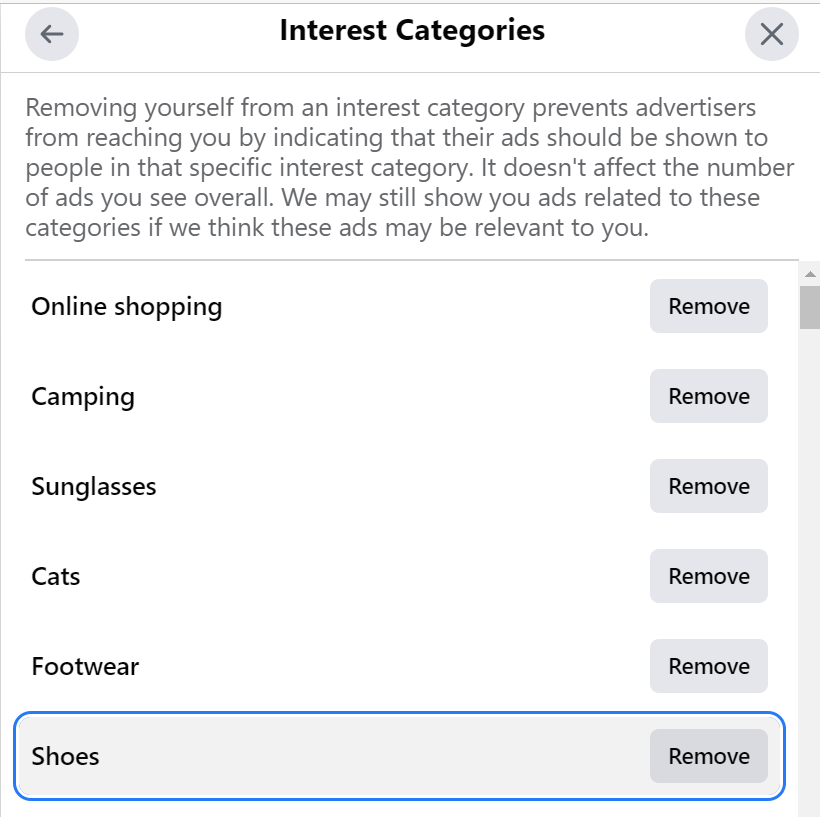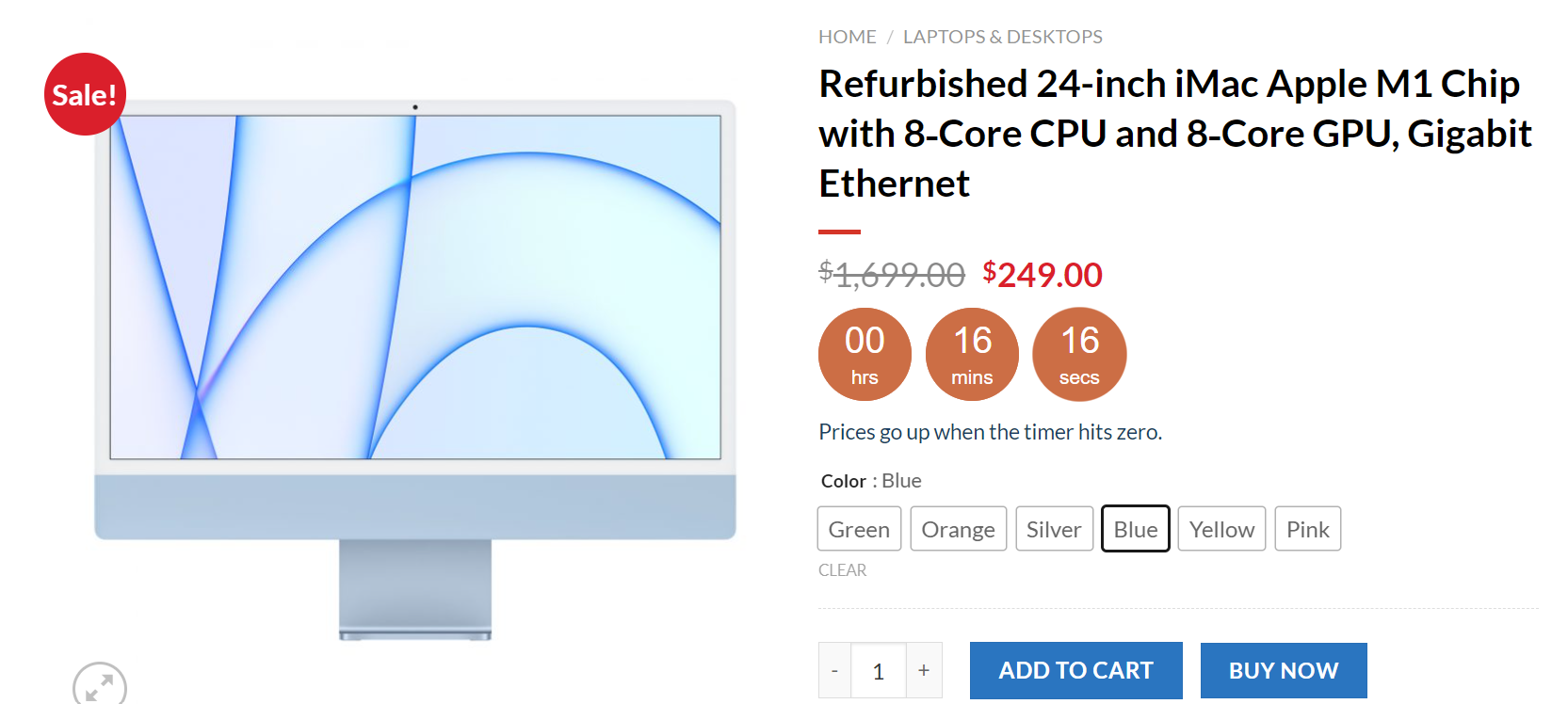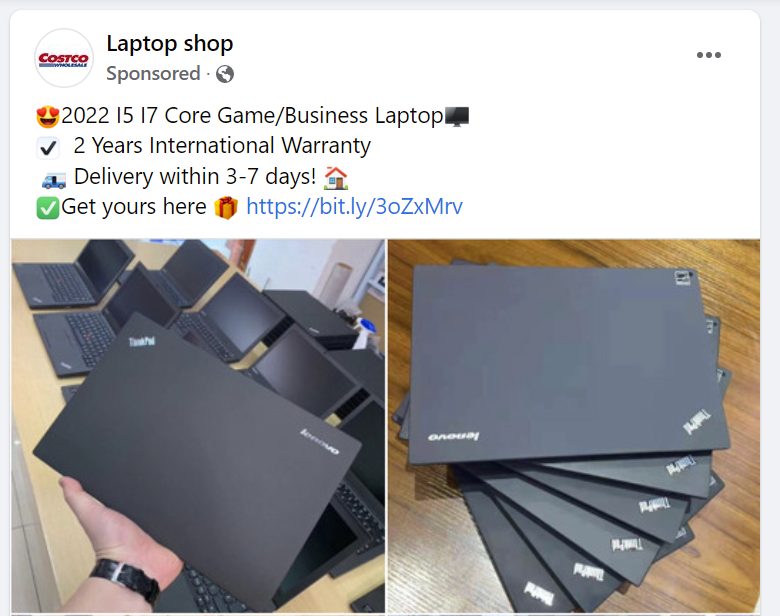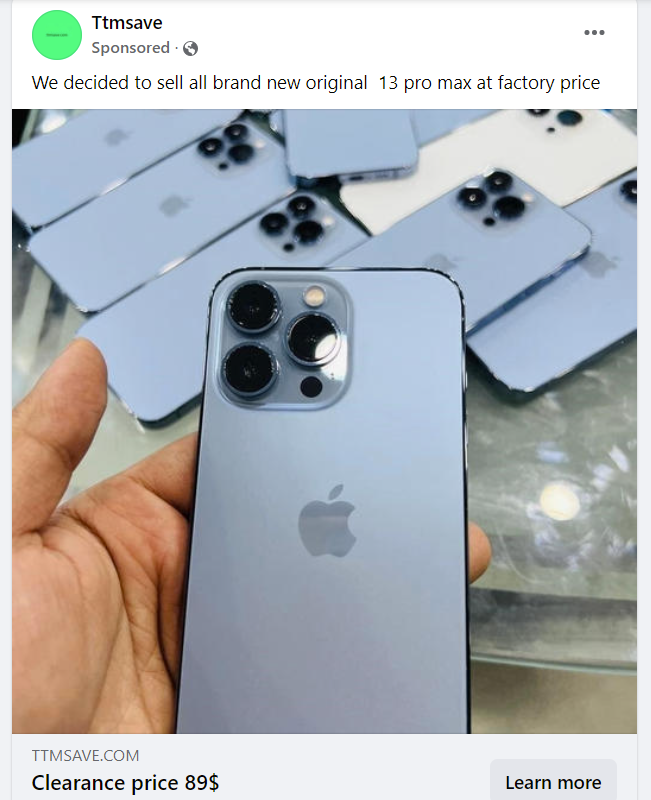ALAN ZISMAN ON
TECHNOLOGY
Something(s) about those (Facebook) ads
By Alan Zisman © 2022-02-24
There's a wise saying that applies to many online services: "If you're not the customer than you're the product".
It explains a lot about the behaviour of organizations like Facebook - we like to think that Facebook is a sort of digital commons - a place where we can post freely and interact with our friends (real and virtual) and get the news about the world and groups we've chosen to hear from. And all that's true, at least to a point.
But in Facebook's business model, all that content that we're creating or looking at is merely filler to keep us watching as our newsfeed shows us ads - 'sponsored' posts.
To an extent, Facebook has democratized the ad business - when the folk band that I play with creates an event, Facebook will send it out, for free, to at least some of the folks who've 'liked' the band, but they offer to spread the news more widely - for a fee. The cost can be relatively modest, starting around $25 or so. More money spent means more people get the sponsored post in their newsfeed.
If you've got time to kill, you can adjust your Facebook ad settings - no, this won't get you fewer ads, but you can adjust what ads you see, or don't see. In a web browser on a laptop or desktop computer, click on the little arrow in the top-right corner of your Facebook window. A menu drops down - pick Settings and Privacy, then Settings. Scroll down the list on the left to Ads. Next, pick Ad Settings - you'll see some interesting stuff, like Ads Shown Off-Facebook. But click on Categories Used to Reach You and then scroll down to Interest Categories. You'll see a short list, but can scroll down to See All Interests for a fascinating set of choices - each of which you can fine-tune:
 Don't want to see ads about Camping? Sunglasses? Cats? How about Shoes? Just click Remove
and they won't clutter your Facebook newsfeed. Go crazy! Just remember,
you'll get the same number of ads, just about topics that you haven't
(yet) removed.
Don't want to see ads about Camping? Sunglasses? Cats? How about Shoes? Just click Remove
and they won't clutter your Facebook newsfeed. Go crazy! Just remember,
you'll get the same number of ads, just about topics that you haven't
(yet) removed.
(But it can be tricky - there's a category named Shoes and another named Sneakers (Footwear). And another named Footwear.)
It's a long, long list and some of the topics are decidedly odd - but others make it seem like it's already been personalized to reflect products or categories I might have shown interest in, in the past.
The next thing that's odd is the frequency of the ads - I was just scrolling through my Facebook newsfeed (looking for an ad to see how exactly they were labelled) and I scrolled on and on without an ad in sight.
Facebook ads seem to come in bunches - some days I get a lot of shoe ads. Or leather jackets.
Earlier today, I was barraged by ads - more or less every three or four posts was an ad, and mostly for tech products - laptops (mostly) plus some smartphones and the like.
A couple of ads were from actual manufacturers - one from laptop manufacturer Lenovo, and other from Samsung.
Most, however, were from mysterious vendors offering products at amazingly low prices. For instance:
I didn't try to buy one - I don't really need a new laptop right now. But similar offerings kept coming my way - each one claiming to be from a different vendor, though several showed the same photos and text though claiming to be from someone else.
Several included what seemed to be a well-known product name, without actually mentioning the manufacturer: 'New Inspiron 17 7000' read a couple of $99 laptops (Dell has an Inspiron product line). Both vendors promising the Inspiron 17 2-in-1 laptops sported Costco Wholesale logos and claimed 'The site cooperates with Costco' (whatever that means!)
Another ad offered an 'S21 Ultra' smartphone (Dell's top-end smartphone last year was a Galaxy S21 - now replaced by the Galaxy S22).
One ad's photo seemed to show a shop full of Apple Macintosh models. The website had several models, some sporting the well-known Apple logo. The descriptions, though, were perhaps a bit fuzzy. For instance: "Costco wholesale sale - 2020 Book Pro with M1 Chip (13 inch, 8 GB RAM, 256 GB SSD Storage): CDN$115.61" Just for comparison, Apple Canada would happily sell me a 2020 model 13" MacBook Pro with an M1 Chip and the same amount of RAM and storage for CDN$1699 or $1439 for a refurbished model.
Now I don't know what I would have gotten if I'd ordered one of these. Maybe the $56 laptop would have been a real Lenovo Thinkpad. Maybe the $99 "Inspiron 17 7000" is a 17" Dell Inspiron. Or maybe I would have gotten a no-name model - the ads that did mention brands promised laptops or phones from brands I'd never heard of like a $60 Kuu i5-11300 laptop.
Or maybe I would have received nothing at all.
And the vendor of the US$89 (CDN$113.94) iPhone 13 Pro Max accepts PayPal payment.
In the same batch of tech hardware ads, there were a couple of TVs, again with identical ads from what claimed to be different vendors - both claiming to have some vague connection to BestBuy.
There was an offer for a license for Microsoft Office Pro 2021 for $15. The Microsoft Store sells it for $569. But there are a wide range of vendors offering to sell license keys for Office Pro for discounted prices. Note that this is selling simply what promises to be a legitimate activation key (serial number); purchasers would need to download their own copy of the software (which can be done fairly easily and legally) - the activation key allows Office to be installed on one computer, and not transferred to another computer if the original one is sold. Typical 'sale' prices for these keys are US$50 - $15 is unusually low.
There were a couple of ads that mentioned 'refurbished' or 'used' products - and these were, I think, above board. Orchard Smartphones is a well-known Canadian used phone vendor. Just for comparison, they don't list any used iPhone 13 models - they do list last year's iPhone 12 Pro Max - with prices starting at CDN$1449.
Refurb.io's ad stressed that you could 'make a difference for a greener planet' by buying refurbished - and while they offered a couple of Chromebooks in low $100-range, their standard Windows laptops started at CDN$349.
Like I said, despite being tempted by a few, I firmly believe that if a price seems too good to be true, that's because there's a catch - either it isn't what you think it is or you may get nothing at all.
It would be nice if Facebook made an effort to take responsibility for the products it advertises. But what are the chances?
 Addition 2022-03-10:
Today I once again was presented with multiple Facebook ads promising
laptops and other computers at fabulously low prices. More or less just
for fun I followed up on one offering various high-end name-brand
laptops and more. I clicked on one of the promised products - this one
a refurbished but current model Apple iMac (M1 processor, 512 GB SSD,
etc) for US$249 (list price US$1699) ('hurry, the price will go
up when the countdown (currently at 18 minutes) reaches 0'). Yesterday,
the price was US$299. I tried to buy it - it promised free shipping,
even to me in Canada. I entered all the required information and
clicked Buy - nothing happened.
Addition 2022-03-10:
Today I once again was presented with multiple Facebook ads promising
laptops and other computers at fabulously low prices. More or less just
for fun I followed up on one offering various high-end name-brand
laptops and more. I clicked on one of the promised products - this one
a refurbished but current model Apple iMac (M1 processor, 512 GB SSD,
etc) for US$249 (list price US$1699) ('hurry, the price will go
up when the countdown (currently at 18 minutes) reaches 0'). Yesterday,
the price was US$299. I tried to buy it - it promised free shipping,
even to me in Canada. I entered all the required information and
clicked Buy - nothing happened.
I tried several times, with the same non-result.
I should have been more wary - along with my credit card #, the page asked for the expiration date and security code #...
A few hours later, I checked with my credit card company - so far no untold purchases have been made on my account. Hopefully it will stay that way.
Older blog postings....
Something(s) about those (Facebook) ads
By Alan Zisman © 2022-02-24
There's a wise saying that applies to many online services: "If you're not the customer than you're the product".
It explains a lot about the behaviour of organizations like Facebook - we like to think that Facebook is a sort of digital commons - a place where we can post freely and interact with our friends (real and virtual) and get the news about the world and groups we've chosen to hear from. And all that's true, at least to a point.
But in Facebook's business model, all that content that we're creating or looking at is merely filler to keep us watching as our newsfeed shows us ads - 'sponsored' posts.
To an extent, Facebook has democratized the ad business - when the folk band that I play with creates an event, Facebook will send it out, for free, to at least some of the folks who've 'liked' the band, but they offer to spread the news more widely - for a fee. The cost can be relatively modest, starting around $25 or so. More money spent means more people get the sponsored post in their newsfeed.
If you've got time to kill, you can adjust your Facebook ad settings - no, this won't get you fewer ads, but you can adjust what ads you see, or don't see. In a web browser on a laptop or desktop computer, click on the little arrow in the top-right corner of your Facebook window. A menu drops down - pick Settings and Privacy, then Settings. Scroll down the list on the left to Ads. Next, pick Ad Settings - you'll see some interesting stuff, like Ads Shown Off-Facebook. But click on Categories Used to Reach You and then scroll down to Interest Categories. You'll see a short list, but can scroll down to See All Interests for a fascinating set of choices - each of which you can fine-tune:
 Don't want to see ads about Camping? Sunglasses? Cats? How about Shoes? Just click Remove
and they won't clutter your Facebook newsfeed. Go crazy! Just remember,
you'll get the same number of ads, just about topics that you haven't
(yet) removed.
Don't want to see ads about Camping? Sunglasses? Cats? How about Shoes? Just click Remove
and they won't clutter your Facebook newsfeed. Go crazy! Just remember,
you'll get the same number of ads, just about topics that you haven't
(yet) removed.(But it can be tricky - there's a category named Shoes and another named Sneakers (Footwear). And another named Footwear.)
It's a long, long list and some of the topics are decidedly odd - but others make it seem like it's already been personalized to reflect products or categories I might have shown interest in, in the past.
The next thing that's odd is the frequency of the ads - I was just scrolling through my Facebook newsfeed (looking for an ad to see how exactly they were labelled) and I scrolled on and on without an ad in sight.
Facebook ads seem to come in bunches - some days I get a lot of shoe ads. Or leather jackets.
Earlier today, I was barraged by ads - more or less every three or four posts was an ad, and mostly for tech products - laptops (mostly) plus some smartphones and the like.
A couple of ads were from actual manufacturers - one from laptop manufacturer Lenovo, and other from Samsung.
Most, however, were from mysterious vendors offering products at amazingly low prices. For instance:
 | This ad included a Costco icon and the words Laptop Shop and photos of
Lenovo Thinkpad laptops. The description is 2022 i5 or i7 Game/Business
laptops. Further down, it appears to have a different company name. No price on the ad - just a link and a Shop Now button. I clicked. The link took me to a page with - again - a Costco Wholesale logo, though the website is not a Costco website. |
 | It
offered options for three laptop models, starting at a Core i5
model with 8 GB of RAM and a 256 GB of storage (ROM) for US$56. Despite
using photos of Lenovo Thinkpads, neither the word 'Lenovo' nor
'Thinkpad' appeared on either the ad or the web page. For comparison, Lenovo (Canada) has Thinkpad models starting around $500. Good deal or what? |
I didn't try to buy one - I don't really need a new laptop right now. But similar offerings kept coming my way - each one claiming to be from a different vendor, though several showed the same photos and text though claiming to be from someone else.
Several included what seemed to be a well-known product name, without actually mentioning the manufacturer: 'New Inspiron 17 7000' read a couple of $99 laptops (Dell has an Inspiron product line). Both vendors promising the Inspiron 17 2-in-1 laptops sported Costco Wholesale logos and claimed 'The site cooperates with Costco' (whatever that means!)
Another ad offered an 'S21 Ultra' smartphone (Dell's top-end smartphone last year was a Galaxy S21 - now replaced by the Galaxy S22).
One ad's photo seemed to show a shop full of Apple Macintosh models. The website had several models, some sporting the well-known Apple logo. The descriptions, though, were perhaps a bit fuzzy. For instance: "Costco wholesale sale - 2020 Book Pro with M1 Chip (13 inch, 8 GB RAM, 256 GB SSD Storage): CDN$115.61" Just for comparison, Apple Canada would happily sell me a 2020 model 13" MacBook Pro with an M1 Chip and the same amount of RAM and storage for CDN$1699 or $1439 for a refurbished model.
Now I don't know what I would have gotten if I'd ordered one of these. Maybe the $56 laptop would have been a real Lenovo Thinkpad. Maybe the $99 "Inspiron 17 7000" is a 17" Dell Inspiron. Or maybe I would have gotten a no-name model - the ads that did mention brands promised laptops or phones from brands I'd never heard of like a $60 Kuu i5-11300 laptop.
Or maybe I would have received nothing at all.
 | I was tempted by the ad showing an iPhone, reading "We decided to sell
all brand new original 13 pro max at factory price: Clearance price $89" The website claimed that this was an 'iPhone 13 Pro Max 5G 128GB - Sierra Blue - CDN$113.94' and while it didn't use the magic word 'Apple' anywhere, it also showed laptops labelled as Dell, HP, and Microsoft Surface models. (Just as a comparison, Apple Canada iPhone 13 Pro Max is CDN$1399). If I was to buy it, the best way to pay - in my opinion - is with PayPal... they're very good a issuing refunds if either nothing arrives or the product that arrives is not what you expected it to be. Even if you don't have a PayPal account, you can use it, connecting it a credit card. |
In the same batch of tech hardware ads, there were a couple of TVs, again with identical ads from what claimed to be different vendors - both claiming to have some vague connection to BestBuy.
There was an offer for a license for Microsoft Office Pro 2021 for $15. The Microsoft Store sells it for $569. But there are a wide range of vendors offering to sell license keys for Office Pro for discounted prices. Note that this is selling simply what promises to be a legitimate activation key (serial number); purchasers would need to download their own copy of the software (which can be done fairly easily and legally) - the activation key allows Office to be installed on one computer, and not transferred to another computer if the original one is sold. Typical 'sale' prices for these keys are US$50 - $15 is unusually low.
There were a couple of ads that mentioned 'refurbished' or 'used' products - and these were, I think, above board. Orchard Smartphones is a well-known Canadian used phone vendor. Just for comparison, they don't list any used iPhone 13 models - they do list last year's iPhone 12 Pro Max - with prices starting at CDN$1449.
Refurb.io's ad stressed that you could 'make a difference for a greener planet' by buying refurbished - and while they offered a couple of Chromebooks in low $100-range, their standard Windows laptops started at CDN$349.
Like I said, despite being tempted by a few, I firmly believe that if a price seems too good to be true, that's because there's a catch - either it isn't what you think it is or you may get nothing at all.
It would be nice if Facebook made an effort to take responsibility for the products it advertises. But what are the chances?
 Addition 2022-03-10:
Today I once again was presented with multiple Facebook ads promising
laptops and other computers at fabulously low prices. More or less just
for fun I followed up on one offering various high-end name-brand
laptops and more. I clicked on one of the promised products - this one
a refurbished but current model Apple iMac (M1 processor, 512 GB SSD,
etc) for US$249 (list price US$1699) ('hurry, the price will go
up when the countdown (currently at 18 minutes) reaches 0'). Yesterday,
the price was US$299. I tried to buy it - it promised free shipping,
even to me in Canada. I entered all the required information and
clicked Buy - nothing happened.
Addition 2022-03-10:
Today I once again was presented with multiple Facebook ads promising
laptops and other computers at fabulously low prices. More or less just
for fun I followed up on one offering various high-end name-brand
laptops and more. I clicked on one of the promised products - this one
a refurbished but current model Apple iMac (M1 processor, 512 GB SSD,
etc) for US$249 (list price US$1699) ('hurry, the price will go
up when the countdown (currently at 18 minutes) reaches 0'). Yesterday,
the price was US$299. I tried to buy it - it promised free shipping,
even to me in Canada. I entered all the required information and
clicked Buy - nothing happened.I tried several times, with the same non-result.
I should have been more wary - along with my credit card #, the page asked for the expiration date and security code #...
A few hours later, I checked with my credit card company - so far no untold purchases have been made on my account. Hopefully it will stay that way.
Older blog postings....
| About This Blog... I've been writing about computers, software, Internet and the rest of technology since 1992, including a 17 year (1995-2012) stint as 'High Tech Office' columnist for Business in Vancouver. This blog includes thoughts on technology, society, and anything else that might interest me - travel (mostly to Italy), accordions. Whatever. Comments, emailed to alan@zisman.ca are welcome - and may be published in whole or part. You can follow me on Twitter or Google + for notice of new blog postings. |
 |